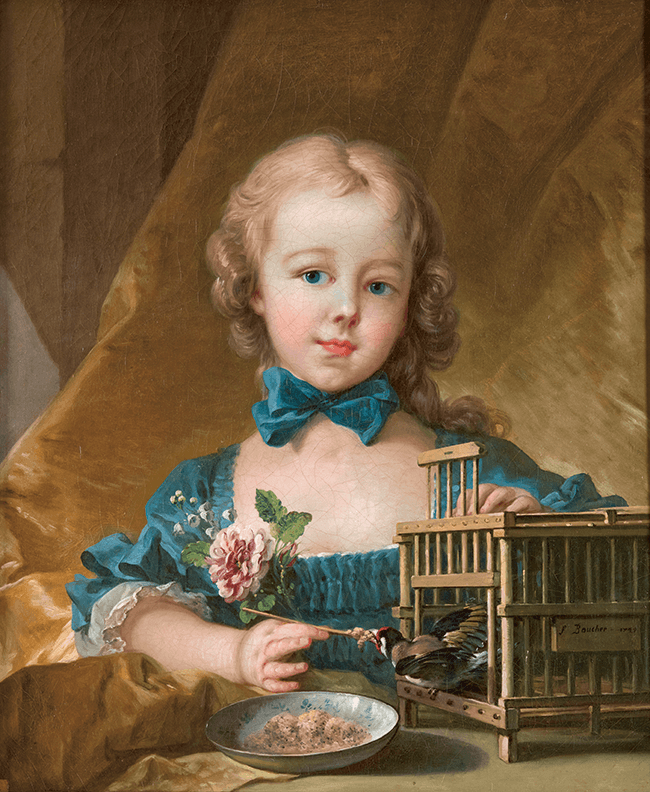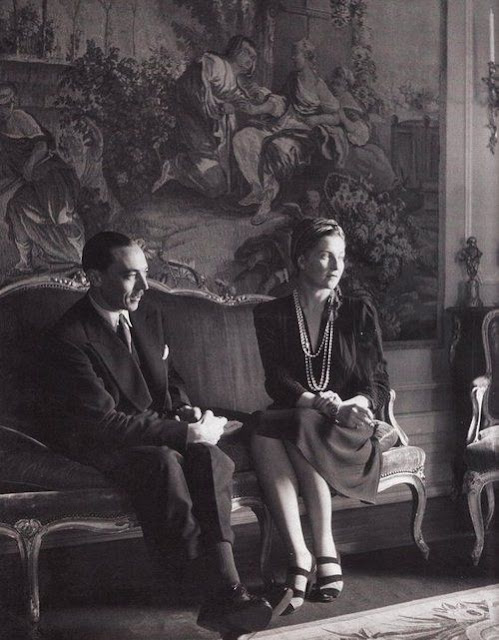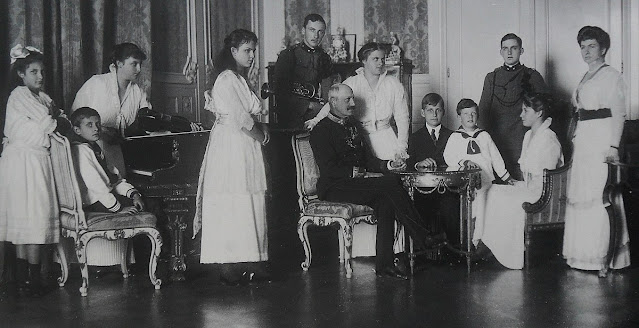Alexandrine
 |
| "Alexandrine Le Normant d'Étiolles" by François Boucher |
Origin: French, Greek
Gender: Female
Meaning: Diminutive of Alexandra; "Defending Men"
Pronunciation: A-LEK-SAHN-DREEN, A-LEK-ZAN-DREEN
Other Forms: Alexandra, Alexandrina, Alexandria, Alessandra
This diminutive of the strong and ancient Alexandra gives the name a bit of feminine frill. Alexandra itself is the female form of Greek Alexander, which comes from alexo, which means "to defend, help", and aner which means "man". Alexandra was the Mycenaean epithet for the Goddess Hera, who held dominion over marriage and birth and considered the cow, lion, and peacock sacred animals.
 |
| Illustration of an Alexandrine Parakeet from around 1770 to 1786 |
If you're talking poetry, Alexandrine is a type of poetic meter, sometimes called the "French alexandrine". An Alexandrine parrot or parakeet is a brightly colored bird that can be found from Germany to Saudi Arabia. It is named after Alexander the Great, who transported several different kinds of birds from Punjab to several countries and regions of the Mediterranean and Europe which were prized greatly by nobility.



Comments
Post a Comment